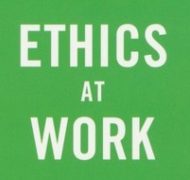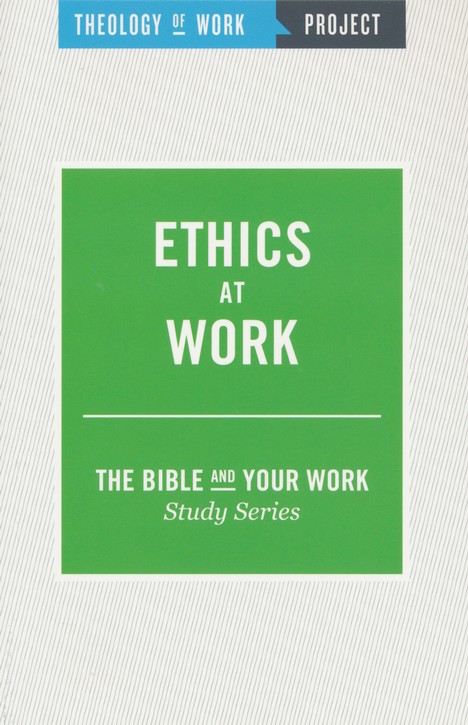Review: Ethics at Work Study Guide
Blog / External content not produced by TOW Project
This review of Ethics at Work is from Bob Trube, Senior Area Director of the Ohio Valley Team in InterVarsity Christian Fellowship’s Graduate/Faculty Ministries. His blog is Bob on Books.

Book: Ethics at Work, Theology of Work Project. Peabody, MA: Hendrickson Publishers, 2017.
Summary: A discussion guide outlining a Christian approach to ethical decision-making in the workplace based on three principles: commands, consequences, and character.
What does Sunday morning have to do with 8 to 5 Monday through Friday (or whatever our working hours may be)? For many Christians that lack of connection between our worship and our work eventually leads to questions either about the truth and reality of our faith, or the possibility of living Christianly in the workplace.
The Theology of Work Project, the developers of this discussion guide and numerous other related resources, are thoroughly committed to the idea that our faith and our work life may be seamlessly connected. On their “about” page, they describe the vision of the Project in these terms:
“The vision of the Theology of Work Project is that every Christian be equipped and committed for work as God intends. A Christian approach makes work more meaningful and productive, benefits society and the people we work with and for, gets us through the challenges we face on the job, draws people to Jesus, and brings glory to God.”
This guide is designed for Christians in the workplace interested in developing a Christian framework of ethical decision-making. It consists of 21 half-hour lessons grouped into seven sections. Each lesson provides short readings (one page or less) with a few biblical texts, interspersed with “Food for Thought” sections, and a concluding prayer. One thing I like is the “less is more” approach that seems to me realistic to accomplish in a half hour discussion over a lunch break or before work.
After exploring some different popular proposals on ethical decision-making, the guide develops a “three-legged” stool approach around the following:
- Commands: is there a relevant biblical command to obey or something to avoid.
- Consequences: how will the various parties involved be affected by the possible choices?
- Character: What kind of person do I want to be or become?
Under this last “leg”, the writers adopt three key aspects of the character of God which scripture calls us to live by, first proposed in Alexander Hill’s Just Business: Christian Ethics for the Marketplace (Hill was the former president of InterVarsity/USA). These are holiness, justice, and love, and need to balance each other.
The guide also introduces a case study developed through the different lessons. A Christian auto dealer (“Wayne”) sells a used car that is in good operating condition with no know defects. Just over a year and over 13,000 miles later, the owner contacts him about transmission problems and asks what he will do to fix it. Subsequent lessons apply the different principles and trace out “Wayne’s” process in reaching a decision about how he will deal with this customer.
While written specifically for use with workplace groups (there is even a section on “Wisdom for Using this Study in the Workplace”), I also think this could be highly useful in adult education courses in churches and with Christian groups in business schools, particularly for those who have already had work experience. I would also highly recommend supplementing the material in this book with resources from the Theology of Work Project website, which includes commentaries related to a theology of work from every book of scripture and a number of other articles on related topics.
____________________________
Disclosure of Material Connection: I received this book free from the publisher. I was not required to write a positive review. The opinions I have expressed are my own.




